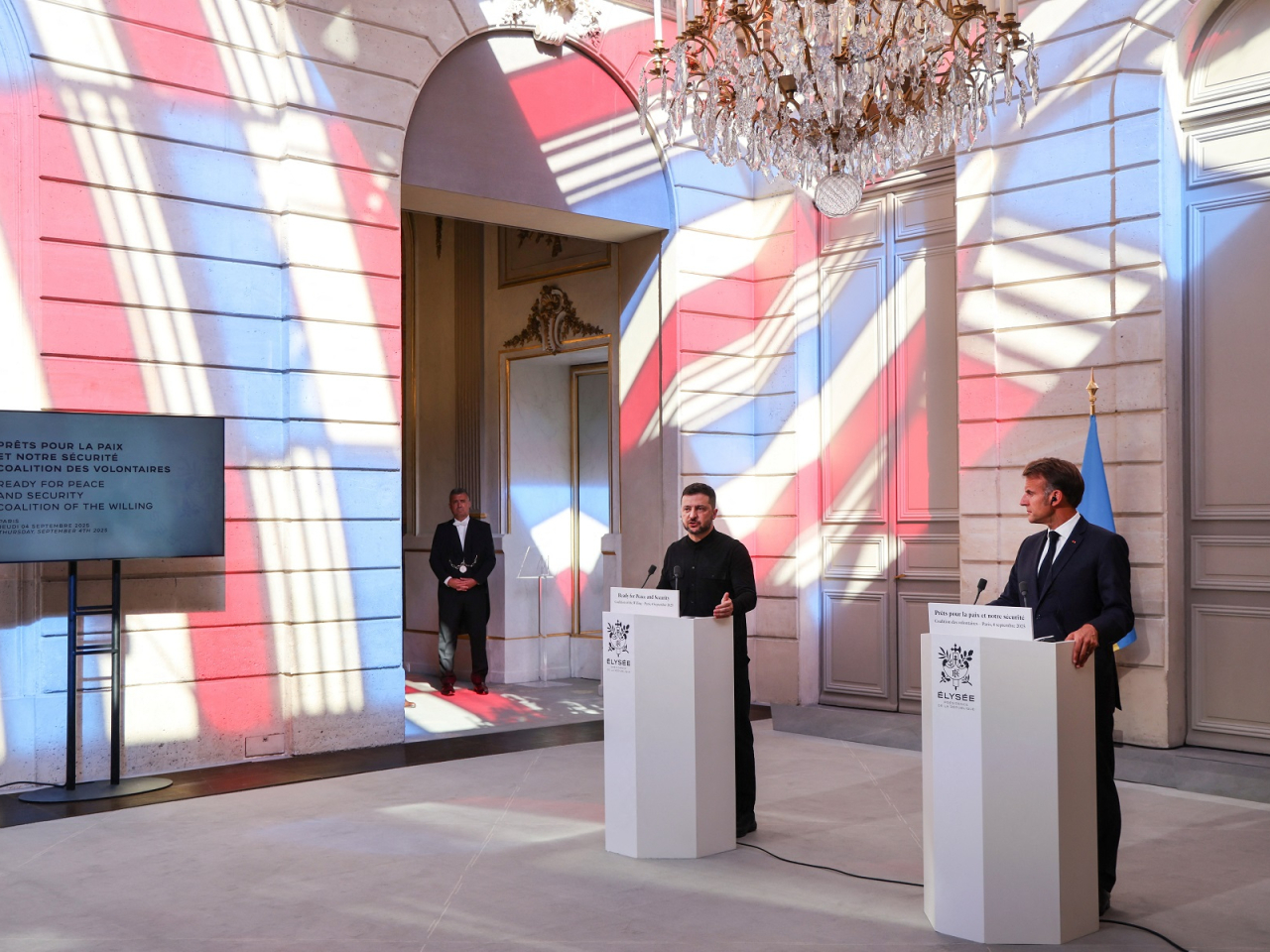Twenty-six nations have pledged to provide postwar security guarantees to Ukraine, which will include an international force on land and sea and in the air, French President Emmanuel Macron said after a summit meeting of Kyiv's allies on Thursday.
Macron said he, fellow European leaders and Ukrainian President Volodymyr Zelensky held a call with US President Donald Trump after their summit and US contributions to the guarantees would be finalised in the coming days.
The meeting of 35 leaders from the "coalition of the willing" – of mainly European countries – was intended to finalise security guarantees and ask Trump for the backing that Europeans say is vital to make such guarantees viable.
Security guarantees are intended to reassure Ukraine and deter Russia from attacking its neighbour again.
"The day the conflict stops, the security guarantees will be deployed," Macron told a press conference at the Elysee Palace in Paris, standing alongside Zelensky.
European officials say peace looks a distant prospect for now but they want to be ready whenever the war ends. They also see the planning of security guarantees as a way to reassure Kyiv of their support and hope Trump will join their efforts.
Macron initially said the 26 nations – which he did not name – would deploy to Ukraine. But he later said some countries would provide guarantees while remaining outside Ukraine, for example by helping to train and equip Kyiv's forces.
He did not say how many troops would be involved in the guarantees.
Germany and other countries pledged they would be involved in that effort. But Berlin said it would decide on a military commitment only when conditions were clear, including the extent of US involvement in security guarantees.
Italian Prime Minister Giorgia Meloni made clear she would not send troops to Ukraine but said Italy was open to monitoring a ceasefire and training Ukrainian troops outside the country.
France and Britain, which co-chair the coalition of the willing, have indicated they are open to deploying troops to Ukraine after the war ends.
"We are working out which countries will take part in which security component," Zelensky said.
"Twenty-six countries agreed to provide security guarantees. Today, for the first time in a long time, this is the first such serious, very specific substance."
On his call with the coalition leaders, Trump said Europe must stop purchasing Russian oil that he said is helping Moscow fund its war against Ukraine, a White House official said.
"The president also emphasised that European leaders must place economic pressure on China for funding Russia’s war efforts," the official said.
Macron said the coalition and the United States had agreed to work more closely on future sanctions, notably on Russia's oil and gas sector, and on China.
Bulgaria's Prime Minister Rosen Zhelyazkov said his country has no plans to send troops to Ukraine, but that it is willing to contribute to the naval efforts in the Black Sea such as de-mining.
"We will stay within maritime domain," Zhelyazkov said in Sofia after meeting Antonio Costa, the head of the European Council.
Bulgaria also wants to form a regional security alliance with neighbouring Romania and Turkey, he said.
European governments have said European forces in Ukraine would need their own US security guarantees as a "backstop". Trump has made no explicit commitment to go that far.
His special envoy, Steve Witkoff, met French, British, German, Italian and Ukrainian senior diplomats ahead of the summit, before briefly attending the opening session. (Reuters)





